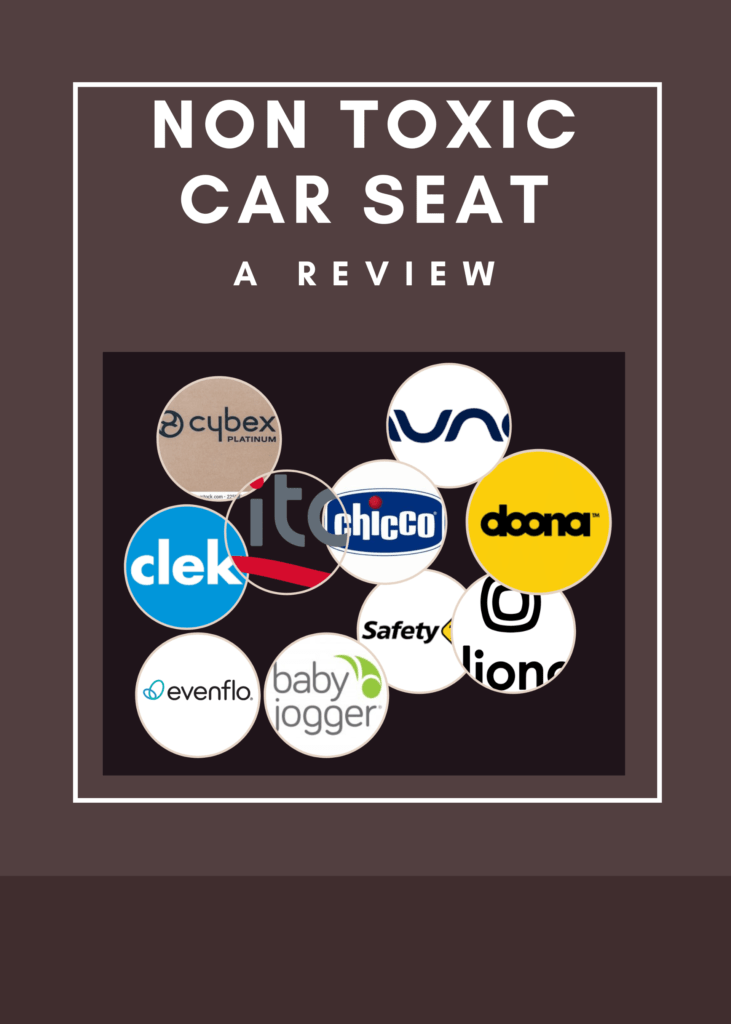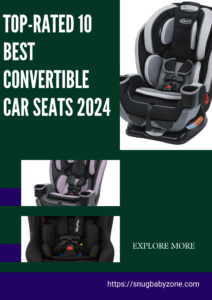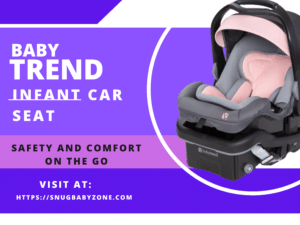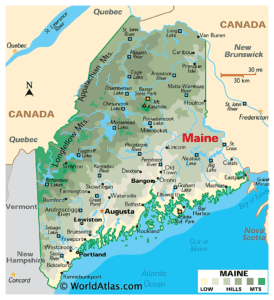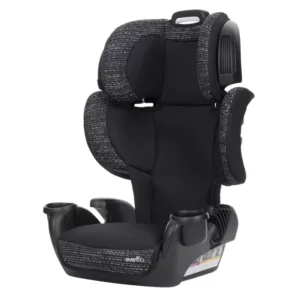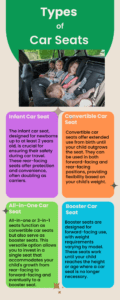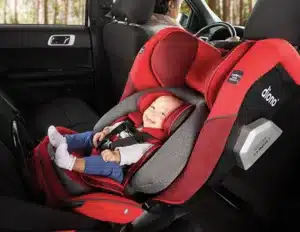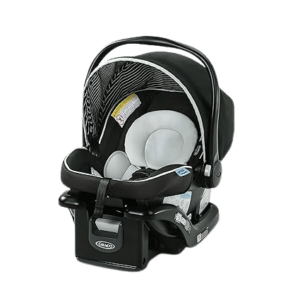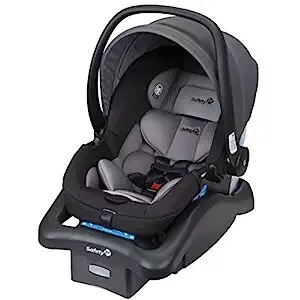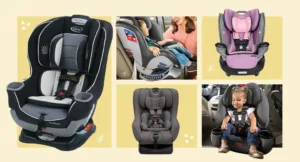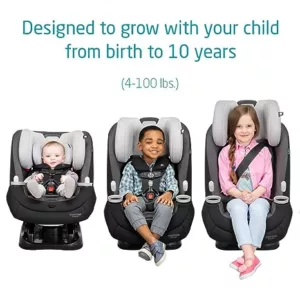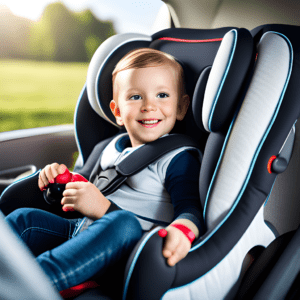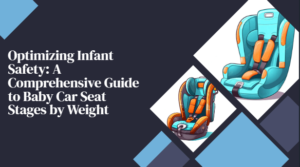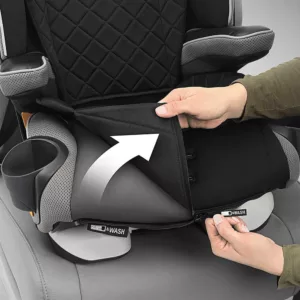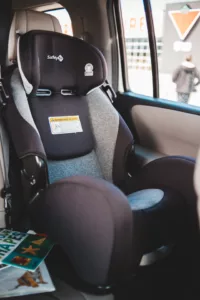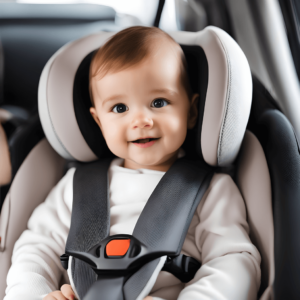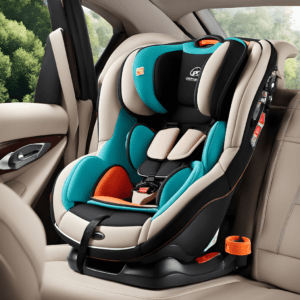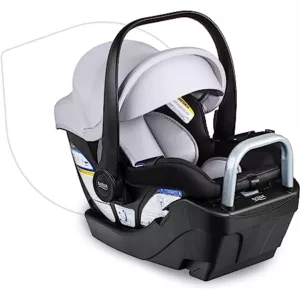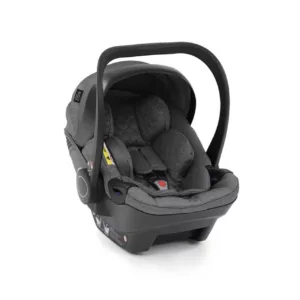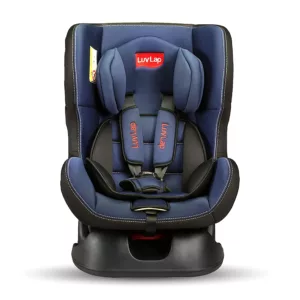This guide aims to decode the realm of non toxic car seat, shedding light on what makes some car seats toxic, which ones are non toxic, and why choosing the latter is paramount.Ensuring the safety of our little ones during car journeys is a top priority for every parent. In recent years, the conversation around car seat safety has expanded to include a crucial aspect – toxicity.
Thank you for reading this post, don't forget to subscribe!Unveiling Toxic Car Seats:
Table of Contents
ToggleUnderstanding what makes certain car seats toxic is essential for informed decision-making. Toxic car seats often contain harmful flame-retardant chemicals. These chemicals, while intended to meet flammability standards, can pose health risks, especially for young children. Common flame retardants include Tris(1,3-Dichloro-2-Propyl) Phosphate – TDCPP, which has been linked to cancer, and other Bromine and Chlorinate compounds.
The Culprits – Flame Retardant Chemicals:
Manufacturers have traditionally relied on flame retardants to comply with flammability standards, such as Federal Motor Vehicle Safety Standards – FMVSS 302. These chemicals, however, come with a downside. Prolonged exposure can lead to health concerns, making it imperative to seek alternatives for the safety and well-being of our children.
Embracing Non Toxic Car Seat Solutions:
Several manufacturers have stepped up to the challenge, redefining the landscape of car seat safety. Non-toxic car seats prioritise materials and manufacturing processes that meet safety standards without resorting to harmful flame-retardant chemicals.
Info-Graphics – Non Toxic Car Seat:
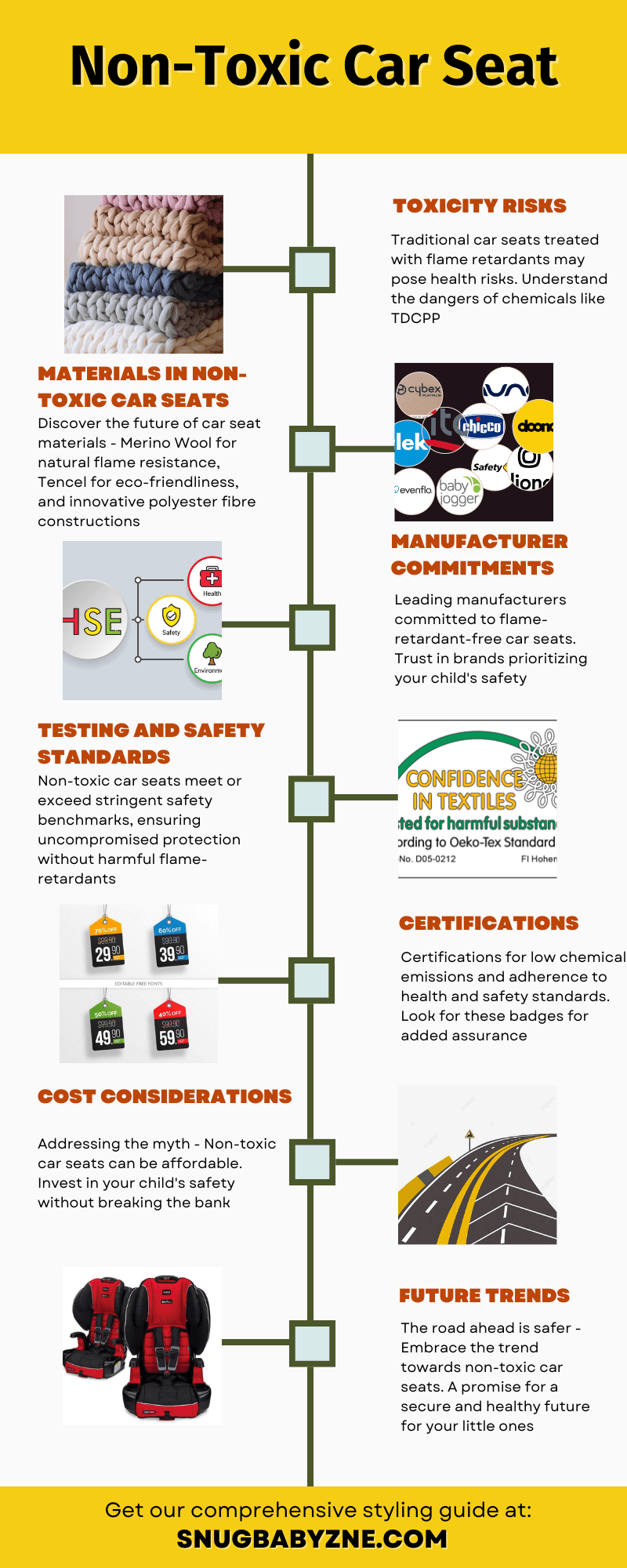
Material Innovations:
Merino Wool: Natural and inherently flame-resistant, Merino wool has become a popular choice for non-toxic car seats. Brands like UPPAbaby, Clek, and Orbit utilize Merino wool blends for their flame-retardant-free options.
Tencel: Known for its Eco-friendliness and breath-ability, Tencel is another material embraced by manufacturers like Nuna in crafting non-toxic car seats.
Polyester Fibre Constructions: Innovations like Chicco’s Clear-Tex utilize polyester fiber constructions that inherently meet federal car safety flammability standards without additional chemical treatments.
Commitments to Non Toxic Car Seat:
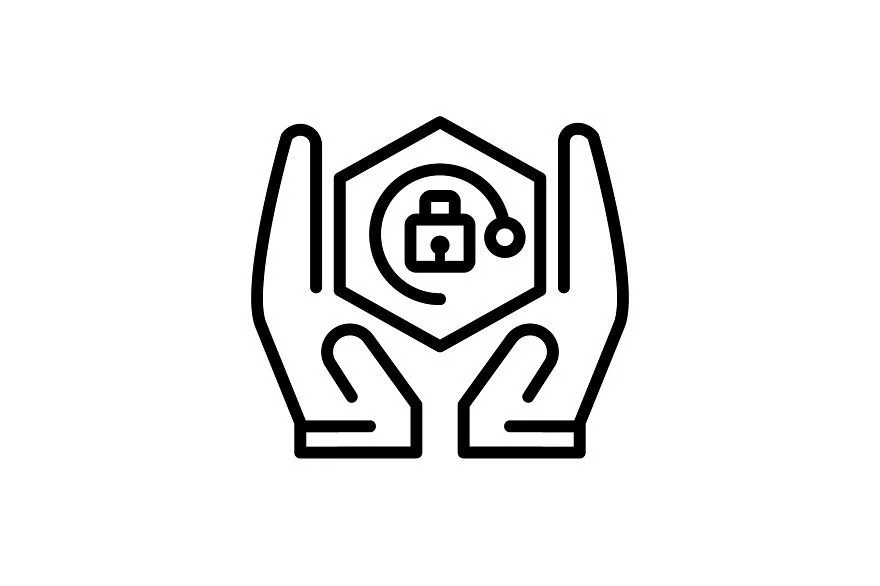
Manufacturers like Nuna, Britax, Chicco, Clek, Maxi-Cosi, and Peg Perego have made significant commitments to producing non-toxic car seats. These commitments involve using FR-free materials, implementing changes in fabric choices, and adhering to stringent safety standards.
Making the Informed Choice:
As consumers, making an informed choice involves understanding the materials used in car seats, the manufacturer’s commitment to non-toxicity, and the overall safety standards met by the product. Non-toxic car seats not only protect our children from harmful chemicals but also contribute to a safer, healthier driving experience.
Evolution in Car Seat Textiles:
Manufacturers are investing in innovative fabrics and production processes to meet the NHTSA’s flammability standard without using flame-retardant chemicals.
Flammability Standard Concerns:
The NHTSA’s flammability standard is over 50 years old and doesn’t necessarily address how a car seat would burn in a real-life fire situation. Some manufacturers still use flame-retardant chemicals to comply with the FMVSS 302 flammability standard.
Manufacturers Offering FR-Free Car Seats:
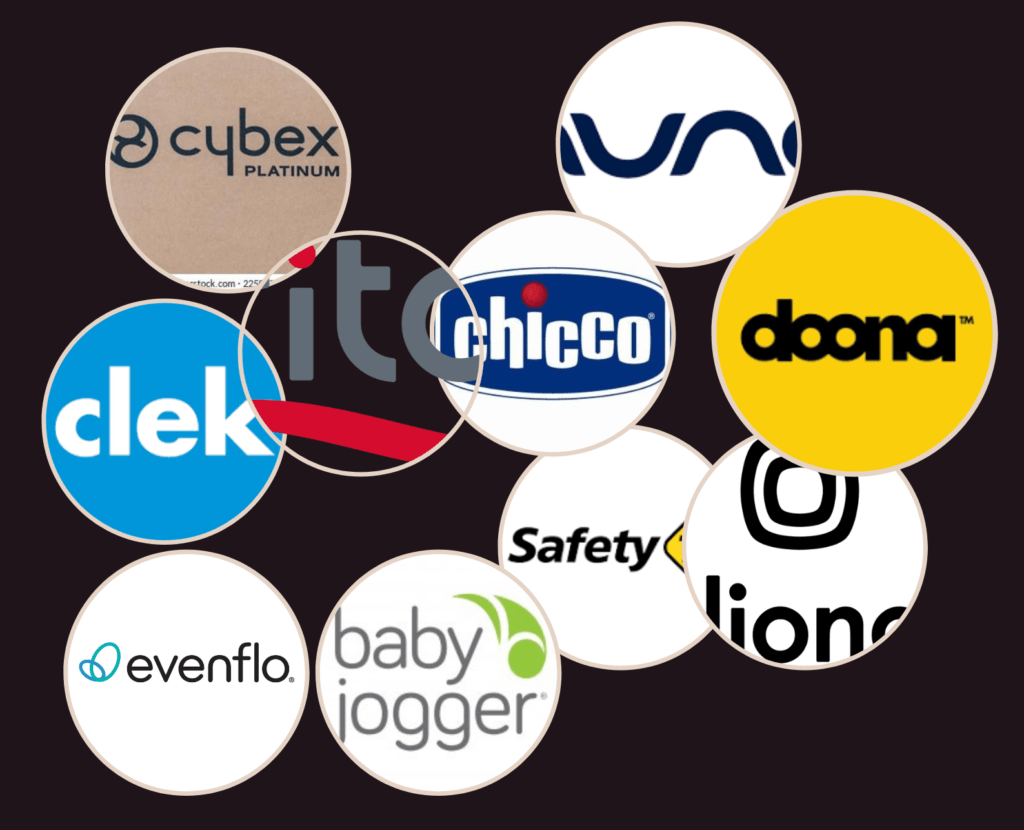
Nuna is the only manufacturer committed to making every car seat model in their lineup free of chemical flame retardants. UPPAbaby introduced a flame-retardant-free car seat cover, utilising Merino wool, a naturally flame-retardant material. Chicco, UPPAbaby, Britax, and Maxi-Cosi have made commitments to innovative textiles that don’t require chemical treatments to pass the flammability standard.
List of Manufacturers Providing FR-Free Car Seats as of 2024:
- Nuna
- Clerk
- Britax
- UPPAbaby
- Maxi-Cosi
- Chicco
- Peg Perego
Details by Manufacturer Regarding Flame-Retardant-Free Car Seats:
The additional details provided by each manufacturer regarding their flame-retardant-free car seat offerings:
Britax Non Toxic Car Seats:
- Safe Wash Designation: Fabrics are inherently flame-retardant, eliminating the need for additional FR chemicals.
- Washer and Dryer-Friendly: Fabrics are designed to be washer and dryer-friendly, making them convenient for users.
Chicco Non Toxic Car Seats:
- ClearTex Products: Utilise fabrics, foams, and labels that comply with federal car safety flammability standards without added chemical treatments.
- Innovative Construction: ClearTex uses an innovative construction of polyester fibres to produce inherently fire-resistant fabrics.
Clek Non Toxic Car Seats:
- FR-Free Claims: Depend on fabrics.
- Mammoth Collection: Clek’s premium eco-friendly fabric, a Merino wool blend, is naturally flame-retardant.
Maxi-Cosi Non Toxic Car Seats:
- Pure-Cosi Development: Achieved through changes in fabric choices, company policies, and practices without added chemicals.
- Flammability Standards: Met through fabric and design choices.
Nuna Non Toxic Car Seats:
- FR-Free Materials: Every Nuna car seat model since late 2020 has been made with FR-free materials, including fabric and foam.
- Materials: Tencel and Merino wool blend knit, eco-friendly and natural.
Orbit Baby Non Toxic Car Seats:
- Oeko-Tex Standard 100 Certification: Fabrics certified for health and environmental standards.
- Merino Wool Cover: 65% Merino Wool, 35% Polyester blend, naturally flame-resistant.
Peg Perego Non Toxic Car Seats:
- FR-Free Marino Wool Cover Option: Available for the Primo Viaggio 4-35 Nido Infant Seat & Primo Viaggio Convertible Kinetic.
UPPAbaby Non Toxic Car Seats:
- MESA V2 Car Seat: All fashions are free of fire-retardant chemicals.
- Merino Wool: Some fashions feature Merino wool, a naturally fire-retardant material.
- KNOX Fashions: Pass federal fire safety testing without the application of chemical flame retardants.
These details provide insights into how each manufacturer approaches flame-retardant-free car seats, using materials such as Merino wool, innovative fabric constructions, and changes in fabric choices to meet safety standards without relying on added chemical flame retardants.
The landscape of car seat safety is evolving, and non-toxic options are becoming more accessible. By decoding the realm of non-toxic car seats, we empower parents to prioritise the safety and well-being of their children, contributing to a future where toxic car seats are a thing of the past. Let’s drive towards a toxic-free future, one car seat at a time.
Certification:
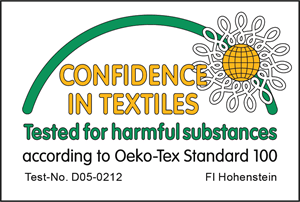
Some car seat fashions are UL GREEN-GUARD GOLD certified, indicating that they meet specific criteria for limiting emissions of various Volatile Organic Compounds (VOC) and total chemical emissions.
Attaining UL GREEN-GUARD Certification for products with low chemical emissions not only showcases adherence to crucial emission standards but also underscores your dedication to fostering healthier indoor environments.
Final Verdict:
In the realm of non-toxic car seats, our journey has uncovered a critical shift in prioritising child safety. As flame-retardant chemicals take a backseat, manufacturers are steering towards innovative materials, marking a significant leap in creating safer car seats for our children. The commitments from industry leaders and the personal stories shared emphasise the importance of informed choices. Let’s drive forward, not just towards destinations, but towards a future where our little ones ride in safety, comfort, and free from the concerns of harmful chemicals.
Frequently Asked Questions:
Are non-toxic car seats as safe as those treated with flame retardants?
- This question often arises from concerns about whether non-toxic alternatives can provide the same level of safety in the event of a fire. It’s crucial to understand the safety standards and testing methods that non-toxic car seats undergo.
Do non-toxic car seats cost more than traditional ones?
- Many parents want to ensure the safety of their children but may be concerned about the financial implications. Understanding the cost comparison between non-toxic car seats and traditional ones helps in making an informed decision.
How do I know if a car seat is genuinely non-toxic?
- With the increasing popularity of non-toxic car seats, consumers often seek guidance on how to verify the authenticity of a product’s non-toxic claims. This question addresses the need for transparency and certification in the industry.
Can I wash non-toxic car seats without compromising their flame-retardant properties?
- Maintenance and cleanliness are essential factors for parents. This question delves into the practical aspects of caring for non-toxic car seats, especially when compared to seats treated with flame retardants.
Are there any health concerns associated with the materials used in non-toxic car seats?
- Parents may be curious about the potential health implications of the materials in non-toxic car seats. This question explores the safety aspects of the materials and whether they pose any risks to the child’s health.
